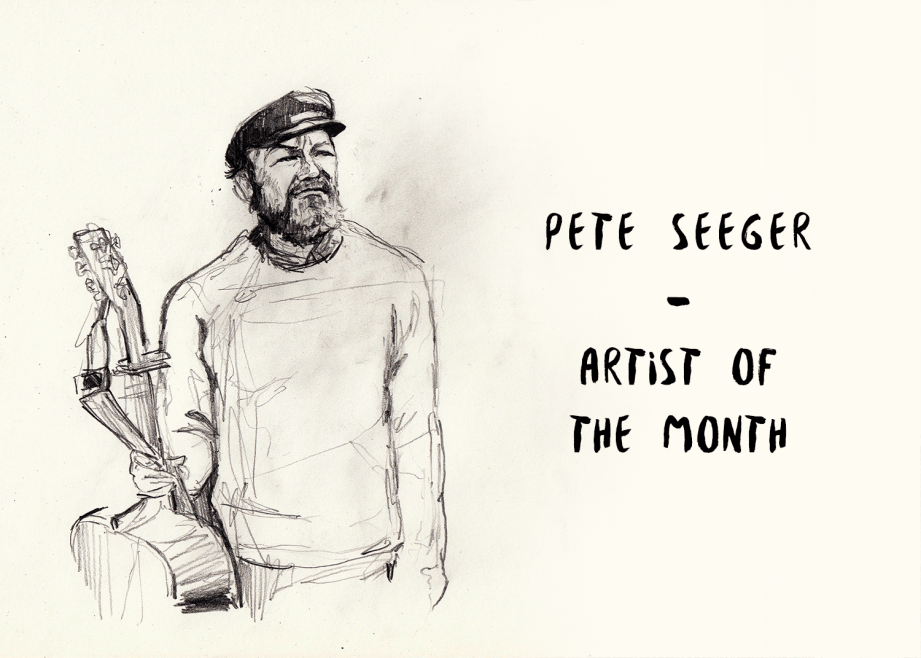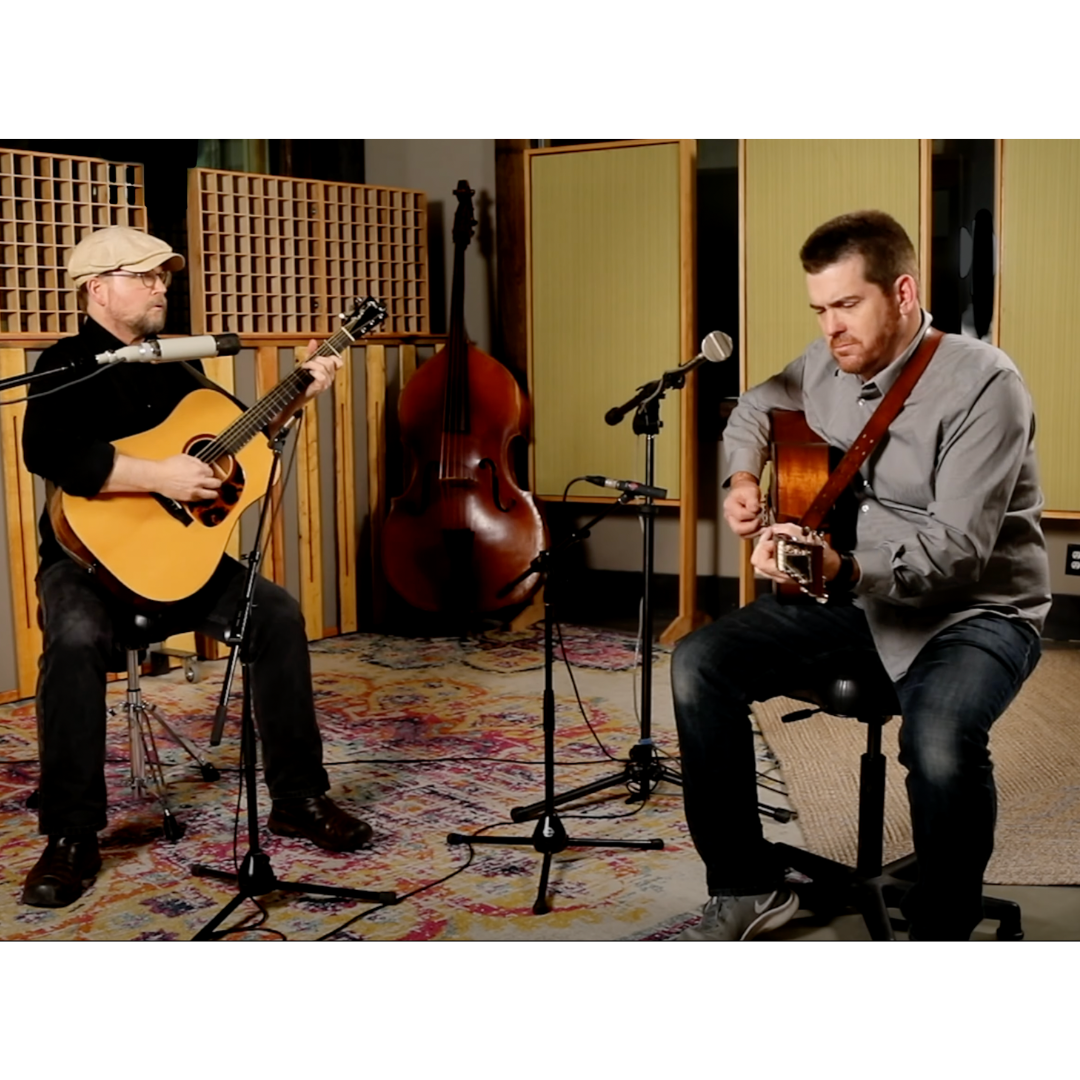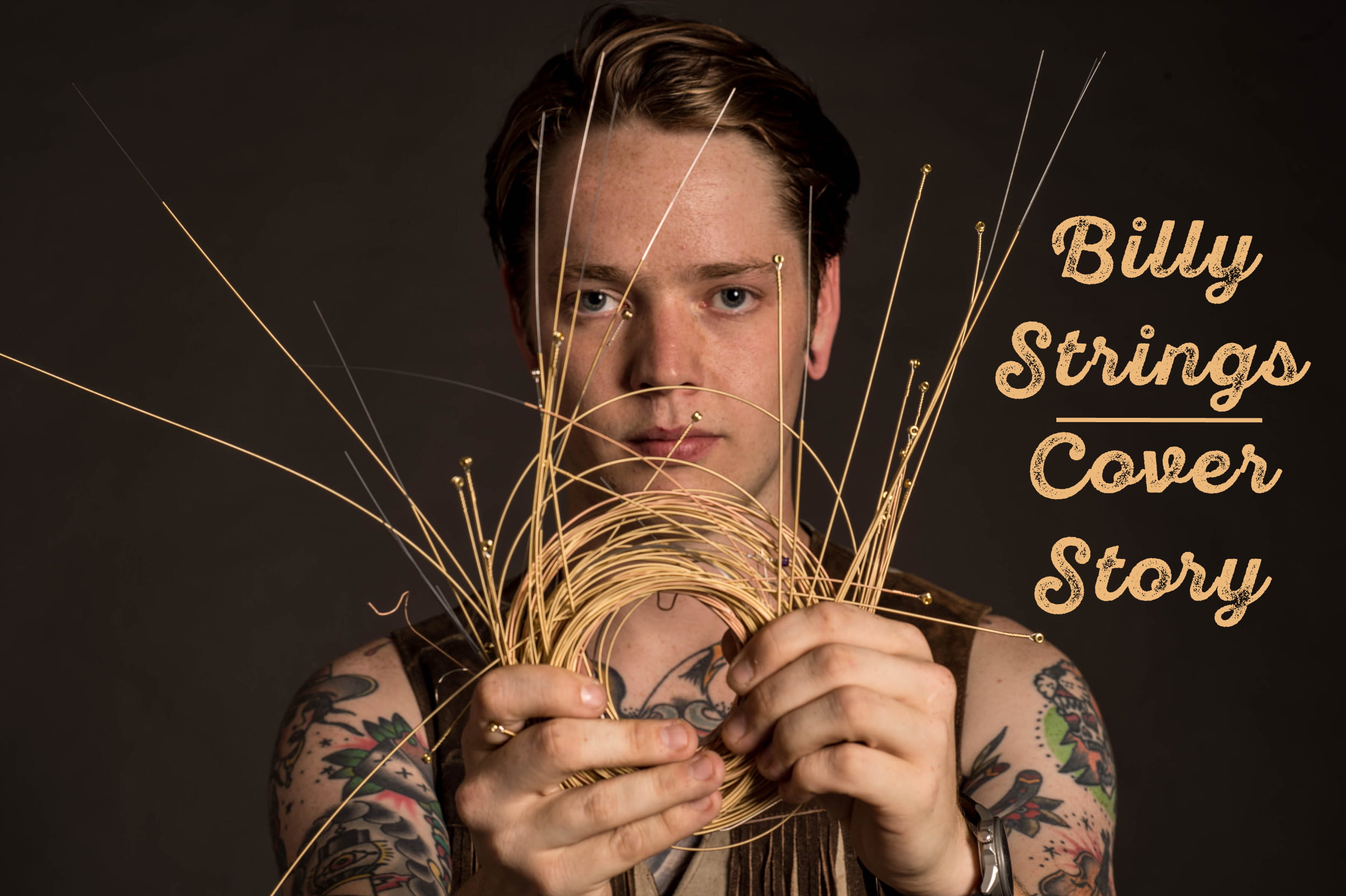Pete Seeger would have turned 100 this month, but he fit well over a century’s worth of impact into the ninety-four years he had. His accomplishments as an activist, musician, folklorist, and organizer have long been numerous enough to fill an anthology—and this month, Smithsonian Folkways has finally released one, complete with six CDs, a 200-page book, and twenty previously unreleased recordings.
The release, Pete Seeger: The Smithsonian Folkways Collection, is just one way to celebrate his centennial. Fans and admirers have also marked the occasion with “Spirit of Seeger” concerts nationwide, and a special set at this summer’s Newport Folk Festival, an event where Seeger’s impact is perhaps most evident.
But Pete’s legacy is about more than a single release or celebration. Jay Sweet, executive producer at Newport Folk and a friend to Seeger, says the late folk music icon wouldn’t want any fanfare for his birthday—he’d rather see a new generation put that energy towards helping others. Here, in the first of a two-part interview, Sweet recalls conversations and memories with Seeger and discusses the way Pete’s egalitarian spirit and fiery pursuit of truth continues to propel the Newport Folk Festival forward.
BGS: You met Pete for the first time after he was a well-established icon in the American folk scene. What was that like for you?
Sweet: They say to be careful when you meet your heroes. For me, with Pete, it was the exact opposite, and it was mostly because he wasn’t Mister Positive. When I met him in his late eighties, he was a bit of a curmudgeon. I actually really liked that. He was feisty, he was disgruntled with the state of everything that was happening in the world, and he was questioning why the younger generations weren’t doing more. I think he kind of considered them soft, and I liked that he was calling it like it was.
Did that attitude reveal itself more as you grew closer over the years?
A story that I love happened few years after I met him, at Newport the first time I brought the Decemberists there. I was really excited to see them—they were going to do a funny reenactment of Dylan Goes Electric, including Pete with an axe. (I’d even told them it’d have to be kind of tongue-in-cheek, because, y’know, uh, Pete’s here.) But during the set, I get this security guard running up to me: “We’ve lost Pete. You told us to keep an eye on Mr. Seeger. We don’t know where he is.” Then, immediately, there’s another security guard running up to me. “There’s somebody in the scaffolding up on stage left, thirty-five feet up in the air. We’ve asked him to come down, but the music has started and we don’t want to interrupt the band on stage. What do we do?”
So I go, and I look, and lo and behold—in his Wranglers and a purple-pink button-down work shirt, with his little hat—was Pete Seeger at ninety-plus, thirty-five feet up in the air, looking down at the Decemberists. I remember being terrified, thinking, Well, the best thing to do is to not scare him, to wait til he comes down. There were no stairs or anything, he had just climbed.
So when he got down, I was like, Pete… what?! And he said, “I was so sick of people asking me to take pictures with them and sign autographs. You told me that this band had a lot of good stuff—that their music was based in old-time sea shanties, had all these metaphors, took from these old tales. And I was fascinated. I had to see it. And they’re fantastic!” And I just remember thinking, I know Newport is onto something when Pete Seeger is climbing the scaffolding to be left alone, just to see good music.
I’ve heard that it was actually Pete’s idea, decades ago, to pay all of the performers the same fee to play—$50. And I know that’s not how it works now, but—
It’s pretty close! [Laughs]
What elements of that spirit are still around?
Well, we perhaps overpay up-and-coming artists — those who need it, really, in order to be able to take the dog-crap offers they get all over the place and still survive. If we don’t overpay them, we give them the opportunity to collaborate with somebody that is gonna help their star shine a little brighter, give them a platform to succeed. With anybody bigger than that, we basically ask to take a zero, or even more than a zero, away from their normal asking fee. And then we make a donation in their name to something that they believe in.
And the reason that works is because there’s an understanding. You can look at, say, the Avett Brothers, who I booked three or four times before they ever headlined. Hozier — his very first, basically, gig, in the United States? It was Newport. Courtney Barnett and Leon Bridges and Margo Price, all these amazing people that came to Newport before they became the names that you might recognize. We need to support the hell out of them, and not just for altruistic reasons. Bands like the Avett Brothers and Wilco and Hozier and the Alabama Shakes and My Morning Jacket, you don’t get those bands to come back year after year if you didn’t support them when nobody else did.
And I think that is all about that $50 model, and a general understanding of it. Fleet Foxes’ Robin [Pecknold] said it really well on a PBS special: He said, when we first came here, they didn’t pay us much, but we hadn’t proven ourselves. Then I think they paid us the exact same amount when we came back to Newport to headline. The interviewer was confounded by that, he asked — why? And [Robin] essentially said, “Because now there’s another band that Jay needs to book. They’re the Fleet Foxes from ten years ago, and they need that help. Me playing it, it’s a giving back.”
And that? It’s very rare. But it comes from the spirit of Pete saying that regardless of whether you’re Bob Dylan at the height of his popularity or church singers from Appalachia, you’re getting fifty bucks. That we’re-all-in-this-together mentality comes from that fifty dollars. And if during my tenure, if the whole thing is as close as I can get to the ideal of Pete Seeger, the better off the festival will be.
What were some of your last interactions with Pete, and how do they affect the way you move forward with Newport?
My last conversations with Pete were much more interesting than my first ones, in some respects. One is that he said to me, “Jay, if you’re not upsetting someone, you’re doing it wrong.” That’s a mantra I keep with me — a what-would-Pete-say kind of thing. That’s what makes Newport, this festival that Pete basically co-founded with George Wein, iconic in American music and around the world, even though it’s so small—why its name gets continuously mentioned in the same breath as the Glastonberrys and Bonnaroos and Coachellas. I remember him saying, “You’ve gotta keep challenging the ears of our audience. Unless you’re upsetting a certain faction, you’re doing it wrong. Take the opportunity.”
About four months before he died, he asked me, “How are you going to keep booking people that speak truth to power, speak on the human condition? Who is doing that now?” I said, “Well, at this point Pete, it’s hip-hop.” I sent him some lyrics—just lyrics at first, no music—and he wrote back and said, “These are fascinating. Does any of this stuff get radio play?” And I was like “Actually, no. It’s somewhat like when you started the festival.” Because when people like Pete and Joan Baez and others had lyrical messages that, due to the lingering effects of McCarthyism, were not “fit for radio,” Newport was created out of that blacklisting.
Pete figured, if I can’t get my message to the masses via these mediums, I’m just gonna do it in person, all over the country and all over the world. I’ll take it to union halls and VFWs and town assemblies, and whatever it is—gymnasiums at public schools. The festival was basically just a massive culmination of the grassroots effort to play for the island of misfits. So I think there was a lot of connection there, for him, with hip-hop—Kendrick Lamar, Chance the Rapper. It was fascinating to me. But white Pete was alive, we could never bring that to fruition for him. Bring somebody to Newport in a free rhyme, just a beat and somebody freestyling. I think he actually would have climbed that scaffolding again: “Leave me alone—I want to go see this truth.”
Illustration: Zachary Johnson
Editor’s Note: Read the second part of our interview with Jay Sweet.



